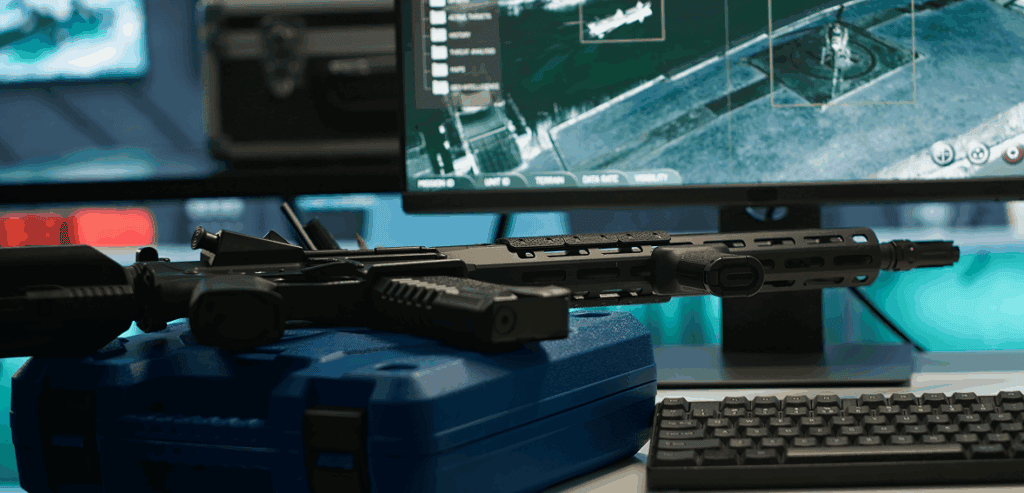
By Freya Pearson May 9, 2025
Federal Firearms License (FFL) businesses face a unique set of hurdles when it comes to running and growing their operations. One of the most frustrating barriers is the difficulty in obtaining and maintaining reliable payment processing services. While many retailers can simply apply and get approved for a merchant account in days, FFL dealers often find themselves declined, delayed, or suddenly dropped without warning.
The core reason lies in how traditional payment processors evaluate risk. Despite operating legally and ethically, FFL businesses are regularly flagged and denied due to the nature of their products, heightened regulatory oversight, and a mix of social and political pressure.
Understanding the Role of Traditional Payment Processors
Traditional payment processors are intermediaries that help merchants accept credit card and debit card payments from customers. These processors work closely with banks, card networks like Visa and Mastercard, and other financial institutions. Their business model depends on managing risk, ensuring compliance, and protecting themselves from reputational harm or financial loss.
For most industries, applying for a merchant account through these processors is relatively straightforward. However, industries considered high-risk by banks are subject to more stringent reviews, higher processing fees, and stricter compliance requirements. FFL businesses are almost always placed in this category.
The result is a landscape where traditional processors often avoid engaging with FFL businesses altogether. If they do agree to provide services, they may impose restrictions that limit how firearm dealers operate.
Why Firearms Are Considered High-Risk by Processors

One of the primary reasons processors hesitate to work with FFLs is risk classification. Banks and processors categorize merchants based on the potential for chargebacks, legal liability, and compliance violations. The firearms industry, because of its unique legal and regulatory environment, scores high on all of these metrics.
Even though firearm sales are legal and regulated in the United States, processors view them as controversial. Media attention, political activism, and public debate have created an atmosphere where financial institutions often prefer to avoid the sector altogether.
The perceived risk is not only about potential legal trouble but also about brand reputation. Many banks and processors fear backlash from stakeholders, advocacy groups, or media outlets if they are found to be servicing gun retailers. These reputational risks drive business decisions just as much as financial data.
Regulatory Complexities Make FFLs Challenging Clients
FFL dealers operate in a tightly controlled space overseen by the Bureau of Alcohol, Tobacco, Firearms and Explosives (ATF). They must comply with complex rules about inventory management, background checks, recordkeeping, and reporting. From a processor’s perspective, servicing such businesses means taking on the responsibility of understanding and enforcing those same compliance rules.
In many cases, payment processors are not equipped to handle this. Their internal compliance teams may not have experience with firearms regulations or may not want to invest in building the necessary oversight. As a result, they choose to simply avoid FFL businesses altogether rather than take on the added work and risk.
Furthermore, firearm sales require careful monitoring to ensure that products are not being sold to restricted individuals or shipped across state lines without proper authorization. Processors worry that if an FFL fails to follow every rule, they too could be held accountable or face negative publicity.
Chargebacks and Fraud Risks in Firearms Sales
Another reason FFLs are viewed as risky is the potential for chargebacks. Firearms are high-value products that can be subject to disputes, especially if a customer claims the item was defective, not delivered, or ordered fraudulently. Each chargeback represents a financial loss for the processor and can damage the merchant’s account standing.
Unlike digital products or basic retail items, firearms cannot be resold easily if returned. They require special handling and reprocessing, which creates added complications. Additionally, most FFLs have strict return policies due to legal restrictions, which can frustrate customers and lead to chargeback requests.
Fraud is also a concern. Fraudulent transactions in this sector can have severe legal consequences. A stolen identity used to buy a firearm poses not just a financial risk but a public safety issue. This elevates the stakes for processors and makes many of them unwilling to take the risk.
Social and Political Pressure on Financial Institutions
Over the past decade, gun control advocacy has intensified. As part of that movement, financial institutions have been pushed to cut ties with firearm-related businesses. Activist campaigns, shareholder pressure, and political lobbying have all played a role in shaping bank and processor policies.
Some processors have publicly stated that they will no longer support businesses that sell firearms or related products. This includes not only gun retailers but also companies that sell parts, accessories, or even gun-themed apparel.
The result is a shrinking pool of traditional processors willing to work with FFLs. Even if a firearm business is fully compliant with the law, it may still be rejected by a processor simply due to internal policy or external pressure.
Platform Restrictions on E-Commerce and Gateways
For FFLs trying to sell online, the challenges multiply. Many e-commerce platforms, gateways, and hosted payment tools do not allow firearm sales. Stripe, PayPal, and Square, for example, have terms of service that prohibit the use of their platforms for gun sales or related items.
This limits the ability of FFL dealers to create modern, scalable online stores. Without access to mainstream platforms, they must rely on niche providers or build custom solutions, which can be expensive and time-consuming.
Moreover, even when a gateway appears to accept firearms merchants, a closer look may reveal restrictions that make operations difficult. Some will process payments only for certain categories, exclude ammunition sales, or require added layers of verification and approval.
High Fees and Unfavorable Terms for Accepted Merchants
On the rare occasion that a traditional processor does accept a firearm business, it often comes with strings attached. High-risk merchants are charged more in processing fees, setup costs, and monthly maintenance. These fees are meant to offset the additional risk and compliance costs the processor takes on.
Merchants may also face rolling reserves, where a percentage of their revenue is held for a period of time to protect against chargebacks or fraud. This can severely impact cash flow, especially for smaller FFL businesses.
Another challenge is that high-risk merchant agreements often include clauses allowing for immediate account termination. If the processor decides the risk profile has changed, they can suspend or close the account without much warning. This instability creates major operational headaches for merchants who rely on uninterrupted payment access.
How Specialized High-Risk Processors Fill the Gap
In response to widespread rejection by traditional providers, a growing number of specialized high-risk processors have entered the market. These companies are designed specifically to serve industries that mainstream processors avoid, including firearms, CBD, adult entertainment, and others.
These processors understand the regulatory landscape and are willing to take on the compliance work necessary to support FFL businesses. They offer tailored onboarding, customer support, and risk management tools that align with the needs of gun retailers.
While the fees may still be higher than standard merchant accounts, the reliability and support offered by these providers often make them the best choice for FFL businesses. Many also offer features like integrated age verification, customized checkout options, and connections to firearm-friendly ecommerce platforms.
What FFLs Can Do to Improve Their Approval Odds
Although the barriers are significant, there are steps that FFLs can take to improve their chances of being approved by a payment processor. The first is transparency. Providing clear documentation, such as ATF licensing, inventory policies, and proof of compliance with state laws, can help build trust during the underwriting process.
It also helps to work with providers who already have experience with high-risk industries. They will know what questions to ask and how to evaluate risk fairly. FFL businesses should prepare for more paperwork, longer application timelines, and follow-up requests for supporting documents.
In some cases, partnering with legal or compliance consultants can help streamline the process. These professionals understand what processors are looking for and can help the business present itself in the most favorable light.
Future Outlook for Payment Processing in the Firearms Sector

The future of payment processing for FFLs remains uncertain. Political polarization and evolving financial regulations continue to impact the availability of merchant services in this space. However, as technology evolves and new financial providers emerge, there may be more options on the horizon.
Some industry groups are advocating for greater protections and transparency in financial services. Their efforts aim to ensure that legal businesses in regulated industries are not denied access to essential banking tools.
Meanwhile, alternative payment methods such as ACH transfers, crypto-enabled gateways, and private financial networks are gaining traction as workarounds. While these options are not yet mainstream, they reflect a growing demand for payment innovation among underserved industries.
Conclusion
Traditional payment processors often reject FFL businesses due to a combination of risk aversion, regulatory complexity, and social pressure. This makes it difficult for gun retailers to access the financial tools they need to operate efficiently and grow. Despite being fully compliant and law-abiding, these businesses are frequently forced to rely on specialized high-risk processors or seek out alternative solutions.
For FFL businesses, understanding the reasons behind these barriers is the first step toward overcoming them. By choosing the right partners, maintaining strict compliance, and staying informed about industry trends, firearm dealers can navigate the payment processing landscape with greater confidence and security.